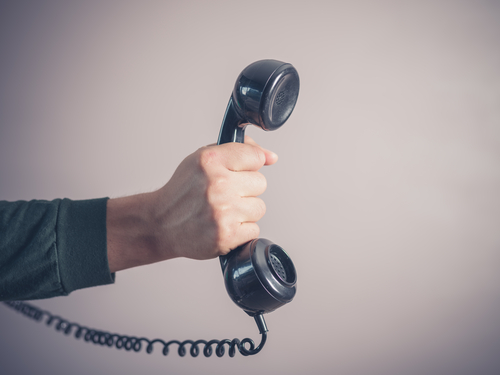


If you're still using traditional copper wire telephone lines, also known as Plain Old Telephone Service (POTS), you should be aware that they're being phased out and becoming increasingly expensive. This means it's time to consider upgrading to a modern, cost-effective solution.
POTS lines, or traditional copper wire telephone lines, are gradually being phased out and replaced with newer, digital alternatives as technology advances. Maintaining POTS lines has become more expensive due to their age and decreasing usage, causing telecom providers to pass on these costs to customers who continue to use them. As a result, it's becoming increasingly important to consider upgrading to a more modern, cost-effective solution like Voice over Internet Protocol (VoIP) or mobile phones. These alternatives offer more advanced features and are often more affordable than POTS lines.
FCC Order 19-72A1 is an order issued by the Federal Communications Commission (FCC) that allows telecom providers to transition from outdated copper networks to newer, more advanced networks. This order recognizes the shift toward digital networks and acknowledges that maintaining legacy copper networks has become increasingly difficult and expensive. Telecom providers are now able to replace existing copper lines with more advanced technologies such as fiber optics and wireless networks. This means that existing copper lines will gradually be replaced by more modern alternatives. The transition will help improve service quality and reliability while also making telecom networks more efficient and cost-effective.
POTS lines are currently used for a variety of applications such as fax lines, alarm systems, elevator phones, emergency call boxes, building entry phones, public safety phones, point of sale systems (POS), old school time card machines, and more. These uses rely on the reliability and connectivity of POTS lines, but as technology advances, it's becoming increasingly important to consider upgrading to more modern solutions that offer additional features and cost savings. Despite the declining usage of POTS lines, they still play a crucial role in many industries and will continue to do so until they are eventually phased out entirely
The cost of maintaining POTS lines is rising due to their outdated technology and decreasing usage. As the infrastructure for POTS lines continues to age, it requires more maintenance to keep them operational. Additionally, the number of people using POTS lines has decreased as digital alternatives become more prevalent, resulting in fewer customers to spread the maintenance costs among. As a result, telecom providers are passing on these costs to customers who continue to use POTS lines, making them more expensive over time. This is why upgrading to a modern, cost-effective solution like Voice over Internet Protocol (VoIP) or mobile phones is becoming increasingly important.
There are several alternatives to POTS lines, including Voice over Internet Protocol (VoIP) and mobile phones. VoIP uses the internet to make phone calls, which can be more cost-effective than traditional phone lines. VoIP also offers more advanced features, such as call forwarding, voicemail transcription, and video conferencing, that are not available on POTS lines. Mobile phones, on the other hand, use cellular networks to make phone calls and offer the convenience of being able to make and receive calls from anywhere. Both VoIP and mobile phones are becoming increasingly popular as alternatives to POTS lines due to their cost-effectiveness, advanced features, and convenience.
Upgrading to a modern solution can help you save money and enjoy advanced features that POTS lines cannot offer. For example, VoIP services often include features such as call forwarding, voicemail transcription, and video conferencing. Additionally, mobile phones offer the convenience of being able to make and receive calls from anywhere.
How can we help? We offer a variety of modern solutions to replace your outdated POTS lines. Our team of experts can help you determine the best option for your business or personal needs. Contact us today to learn more and upgrade to a cost-effective and efficient telecommunications solution.
Yes, you can usually keep your phone number when you switch to a new provider.
You can contact a VoIP or mobile phone provider to sign up for their service. They will usually handle the process of switching your service from POTS to their service.
VoIP uses the internet to make phone calls. It converts your voice into digital signals that can be transmitted over the internet.
The amount you can save by switching from POTS to a modern solution will depend on your usage and the service you choose. However, VoIP and mobile phones are often more cost-effective than POTS lines, especially for long-distance or international calls.
Switching from POTS to a new provider is usually a straightforward process. The new provider will usually handle the process of switching your service from POTS to their service.
The most popular alternatives to POTS lines are Voice over Internet Protocol (VoIP) and mobile phones.
POTS stands for "Plain Old Telephone Service." It's a traditional copper wire telephone line that has been in use for many years.
POTS lines are becoming outdated and more expensive to maintain. As a result, telecom providers are replacing them with newer, digital alternatives.
POTS lines are becoming outdated and more expensive to maintain. Replacing your POTS line with a modern solution like VoIP or mobile phones can help you save money and enjoy advanced features that POTS lines cannot offer.